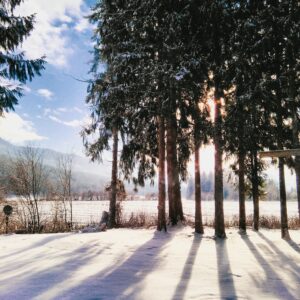Category: Uncategorized
Dallington Coronation Celebration – May 2023
 There will be a meeting open to all the Dallington community on Saturday 25th February at 10am in Dallington Village Hall.
There will be a meeting open to all the Dallington community on Saturday 25th February at 10am in Dallington Village Hall.
All Dallington residents will have a chance to let us know what sort of celebration they would like and the start of organisation and arrangements will be made.
Do come along and join us on the 25th, we need to know how you would like to celebrate this momentous occasion – tea and coffee will be available.
Our Winter Solstice Event 2022
Come and join us on this very special night – the turning of the year – for our 2022 Solstice Celebration on 21st December 2022.
We will all meet up at the Dallington Recreation Ground at 7/7.30pm, enjoy some mulled wine (if you prefer, bring your own), spuds in jackets and sausages.
We will light the beacon and and start to spread the Christmas Cheer.
Irene – Parish Clerk
PS: Druids welcome!
Village Hall Events November 2022
After a very successful quiz night in October, here is the calendar for November:
- Saturday 5th Library Cafe 10-12noon
(our monthly Saturday morning opening) - Thursday 24th Christmas Wreath Workshop 10am -12 noon
Come and make a Christmas Wreath with Frances Gorringe & Pauline Ridley. Materials will be provided, but please bring any decorations you would like to include. £5 per head – proceeds to village hall.
In addition our regular weekly activities continue as follows:
- Mondays Art Club 10am -12noon; Library Cafe 2pm-4pm
- Thursdays Yoga class 8-9pm
- Fridays Chair Yoga 11am -12 noon
For more details of yoga classes and to book a place, please visit https://www.living-yoga.co.uk/classes
To view all forthcoming activities or to book the hall for your own event, please go to https://dallington.org.uk/village-hall/village-hall-booking/
And to book our newly refurbished Billiard Room, go to https://dallington.org.uk/village-hall/billiard-room-booking-page/
Friday’s Messenger Party (&AGM) starts at 7pm
 Please note that the Messenger Magazine Party will start at 7:00 pm this Friday 30 September 2022. This is a correction to the start time in the previous announcement on this web site. The meeting is in Brightling Village Hall.
Please note that the Messenger Magazine Party will start at 7:00 pm this Friday 30 September 2022. This is a correction to the start time in the previous announcement on this web site. The meeting is in Brightling Village Hall. ALL readers of the Messenger Magazine are warmly invited. There will be FREE DRINKS (alcoholic and soft) and nibbles. This is primarily a social occasion – an opportunity to have a relaxing chat with neighbours and others in Brighling, Dallington, Mountfield, Netherfield. It is also our AGM (annual General Meeting) so there will be some brief formalities (very brief, we promise!) including electing the committee that runs the magazine between parties (sorry, AGMs), and an opportunity to discuss the magazine if you want, and perhaps make suggestions for making it even better.The committee hopes that as many people as possible will come. It’s an opportunity to show your support for the magazine (if you like it) or tell us what’s wrong (if you dont like it!) – or just a relaxing evening with a glass of wine or something. See you on Friday.
Agenda for DPC meeting 27.09.22
AGENDA FOR THE DALLINGTON PARISH COUNCIL MEETING, TO BE HELD ON 27th SEPTEMBER 2022
21st September 2022
Parish Council Members are summoned to a Council Meeting of Dallington Parish Council, to be held on 27th September 2022, at 7.30pm in Dallington Village Hall.
Members of the public and press are welcome and encouraged to attend.
Irene Marchant – Parish Clerk/RFO
St. Giles, Woods Corner, Dallington, East Sussex TN21 9LA
01424 838414/07711 224150 – clerk@dallington.org.uk
1. Disclosure of Interests
To receive any disclosures by Members of personal interests in matters on the agenda, the nature of any such interest and whether the Member regards the interest as a disclosable pecuniary interest under the terms of the Code of Conduct.
2. Dispensations
3. Apologies for absence
4. Accuracy of the minutes of the previous meeting(s)
5. Open Forum
5.1 County Council report (ESCC) – Councillor E. Kirby-Green
5.2 District Council report (RDC) – Councillor G. Curtis
5.3 Chair’s report (DPC) – Councillor W. Miers
5.4 Public Question Time – to receive any questions/concerns from members of the public on matters on this agenda.
6. Dallington Recreation Ground
6.1 To consider and action the insurance requirements for users (Radio Club) of the DRG.
6.2 To action the requirement for new doors on the pavilion.
7. Commemorative seating
To finally decide on the lettering for the bench (outside the Church) and complete the order.
8. Planning
8.1 No Dallington planning applications for consideration.
8.2 Any other planning matters for discussion.
9. Enforcement
8.1 No Dallington items on RDC’s most recent enforcement list.
8.2 Any other enforcement matters for discussion.
- Westridge Construction (old Ajeers site and purchased land)
- Westridge Construction, TPOs.
10. Highways/Rights of Way
To consider any Highways/RoW matters that need actioning.
11. Finance
11.1 Bank balances at 31.08.22
- DPC deposit account – £17,310.08
- DPC current account – £2,511.46
- DRG current account – £719.54
11.2 To approve the budget monitor and bank reconciliations at 31.08.22
11.3 to approve the following payments
DPC Account
- Clerk, salary/HO (Aug/Sep 2022), expenses – £857.83
- * Satswana (DPO services) – £90.00
- * ESALC/NALC subscription 2022-23 – £95.00
- * ICO registration 2022-23 -£50.00
* Already paid
DRG Account
- * G. Keely, mowing (10.09.22) – £65.00
12. Dates of next meetings
18.10.22 – planning meeting (provisional)
15.11.22 – full council meeting
Extended deadline for Photography competition
Further to my recent post about the Messenger Photography Competition, the editor has announced that they have extended the closing date for entries until midday on Thursday 22nd September.
Full details in the Messenger July and September issues. So let’s get those last minute Dallington entries in!
Bell to mark death of HM Queen Elizabeth II
(Posted on behalf of Diana Day)
A bell will toll at 12noon tomorrow (Friday 9th September) to mark the death of Queen Elizabeth II; this is following guide lines from central and national ringing circles.
RR/2022/461/P Land opposite Prospect House
Refusal of planning permission.
Additional Compensation for latest power cuts
Please see statement below from Basil Scarsella about additional compensation for the recent power outages.
Statement from UK Power Networks CEO Basil Scarsella
I appreciate what a difficult time this is, for our many customers who have experienced a power cut caused by Storm Eunice which saw record wind speeds and damage across the South East and East of England.
While we work hard to get everybody back on supply, we have decided to make goodwill payments to our customers who were worst affected by power cuts caused by Storm Eunice and have been without power for 24 hours.
We recognise that being without power for this extended period affects your daily life so we have decided to make an extra £50 payment, earlier than payments would normally apply which would be after 48 hours. This means that if you were impacted by Storm Eunice you will be eligible to receive £50 after 24 hours without electricity, an additional £70 when you reach 48 hours, and an additional £70 thereafter for every 12 hours without power.
There is no need for you to call us – we’ll contact everyone who is entitled to a payment by text message, email or letter in the coming days. If you prefer you can fill in our online claim form.
I hope you and your families are safe and well. Please rest assured it’s our top priority to get your power back on as quickly as we can.
Basil Scarsella
